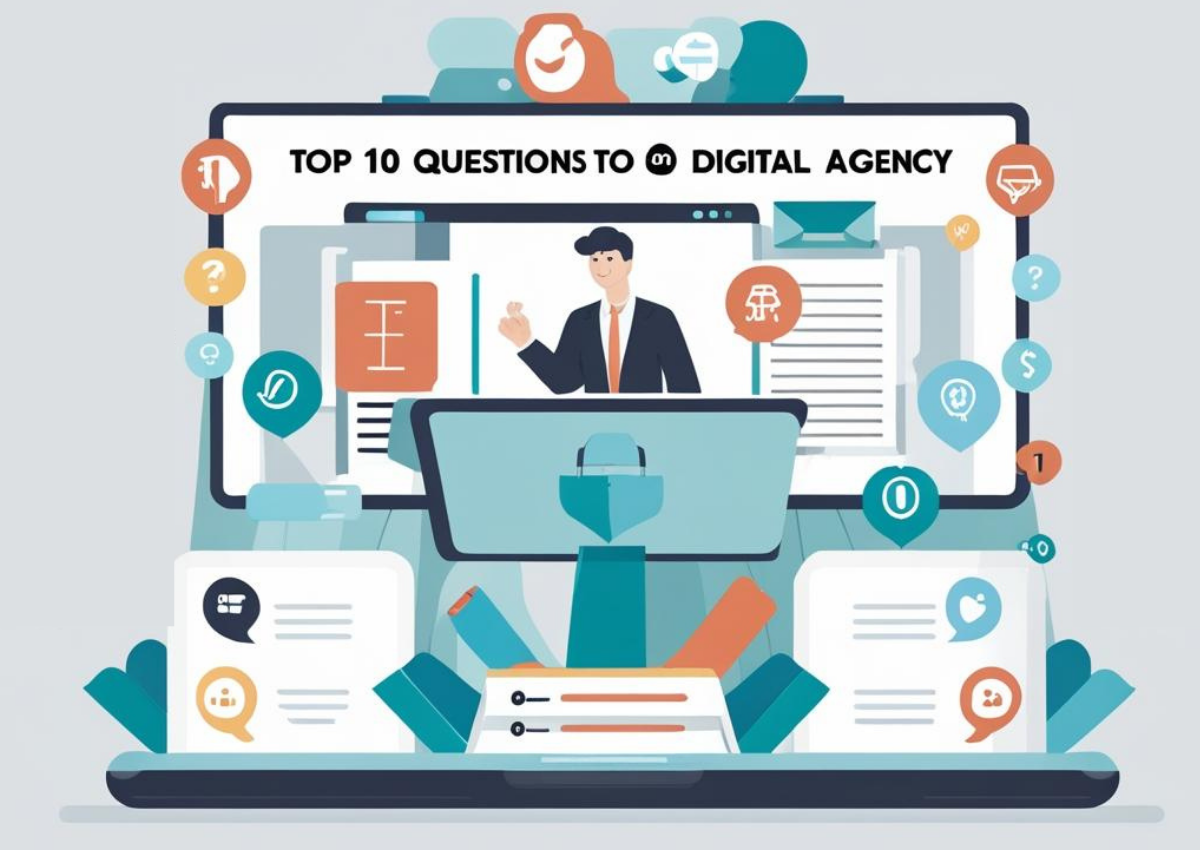Understanding Your Needs Before engaging with a digital agency, it is crucial to identify and clarify your specific business needs and objectives. A well-defined understanding of what you require will not only streamline the selection process but also enhance the potential for a productive partnership. Begin by outlining the core goals you wish to achieve. …
Understanding Your Needs
Before engaging with a digital agency, it is crucial to identify and clarify your specific business needs and objectives. A well-defined understanding of what you require will not only streamline the selection process but also enhance the potential for a productive partnership. Begin by outlining the core goals you wish to achieve. Whether these involve increasing brand awareness, enhancing user engagement, or generating leads, establishing these key objectives will serve as a guiding framework throughout your collaboration.
Additionally, it is essential to consider any budget constraints that may impact your project. Digital agencies typically offer a range of services, with costs varying significantly based on the complexity and depth of the project. By determining a clear budget beforehand, you can filter potential agencies based on their capacity to deliver within your financial parameters, thus avoiding unnecessary proposals that do not align with your fiscal expectations.
Another critical factor is project timelines. Establishing realistic timeframes for deliverables is necessary to ensure that the digital agency can meet your expectations. Discussing deadlines early in the process helps to synchronize both your timelines and the agency’s workflows, enhancing project efficiency. Furthermore, don’t overlook the significance of a well-defined scope of work. Clearly delineating what you expect from the agency helps to mitigate miscommunication and ensures that both parties have aligned expectations. This includes detailing services required, milestones, and final desired outcomes, such as the look and feel of a website or the specific metrics for success.
In essence, a thorough understanding of your needs sets a solid foundation for collaboration with a digital agency, enhances communication, and ultimately leads to better results. Taking the time to accomplish this preparation will vastly improve your ability to select the right partner who aligns with your business vision.
Assessing Experience and Expertise
When considering a digital agency for your project, it is vital to assess their experience and expertise thoroughly. One of the first questions to pose is about their previous projects and portfolio. Request detailed examples of their work that align with your industry or project type. A robust portfolio not only showcases the agency’s creativity but also reveals their capacity to deliver results that resonate with your specific audience.
Additionally, it is imperative to inquire about case studies that reflect the agency’s approach to problem-solving. Case studies provide concrete evidence of how the agency has successfully tackled challenges in the past. By understanding their methodology and the results achieved, you gain insights into how well the agency could navigate your unique requirements and goals.
Another critical aspect to consider is the agency’s industry expertise. Ask if they have experience working with brands similar to yours or in your particular market sector. Specialized knowledge can significantly affect your project’s success, as agencies that have previously worked within an industry are often more adept at anticipating challenges and understanding customer behavior patterns.
Client testimonials can also serve as a testament to an agency’s capabilities. Request references from past clients and engage with them to gain honest feedback about their experiences. Understanding how the agency communicates, adheres to timelines, and meets client expectations can significantly inform your decision-making process.
Ultimately, assessing a digital agency’s experience and expertise through these questions will provide clarity and confidence in your choice. Ensuring that the agency has a proven track record in your industry is essential for establishing a fruitful partnership that meets your needs and objectives effectively.
Evaluating Communication and Collaboration
Effective communication stands at the core of a fruitful agency-client relationship. When contemplating the hiring of a digital agency, asking pertinent questions about their communication processes is paramount. Begin by inquiring how the agency reports progress throughout the project’s lifespan. Regular updates keep clients informed and engaged, which can significantly enhance collaboration. Understanding the frequency and format of these communications, whether through emails, project management tools, or scheduled meetings, can dramatically affect the project’s success.
Consider asking specific questions about how the agency handles feedback. A responsive agency should not only be open to client input but also provide mechanisms for incorporating that feedback in a structured manner. This collaboration ensures that the project aligns with the client’s vision while allowing for flexibility and adjustments when necessary. Clarifying how the agency prioritizes feedback will give insight into their adaptability and commitment to client satisfaction.
Moreover, understanding the agency’s team structure is essential. Ask who will be directly involved in the project, including the roles and expertise of each team member. Knowing the key players allows potential clients to gauge the skill sets and experience levels present within the agency, facilitating an understanding of how these individuals contribute to the project. This knowledge not only enhances transparency but also helps clients anticipate who to contact regarding specific aspects of the work.
In addition, explore how the agency fosters collaboration among team members. An agency that promotes synergy through collaboration can be more innovative and effective in delivering results. Evaluate their practices for brainstorming sessions, strategy meetings, and the sharing of information across different departments. Strong inter-team communication is often indicative of a digital agency’s capability to execute comprehensive and cohesive marketing strategies.
Understanding Pricing and Contract Terms
When engaging a digital agency, grasping the financial commitments and contract stipulations is essential for a productive partnership. One of the primary considerations pertains to the pricing models utilized by the agency. Agencies may employ various pricing methods, such as hourly rates, project-based fees, or retainer agreements. It is critical to assess which model aligns best with your expectations and project needs. Understanding how these pricing structures function can significantly impact your budget and the overall success of the engagement.
Additionally, inquiring about payment schedules is vital. Clarify whether costs are to be paid upfront, in installments, or upon completion of deliverables. This understanding allows for better cash flow management while also ensuring that you are only paying for services rendered. Moreover, you should be vigilant about potential hidden fees, which can sometimes arise in the digital agency landscape. Asking pointed questions about any additional costs—such as charges for revisions, unforeseen project changes, or even ongoing support—can help to prevent unpleasant surprises later in the engagement.
Equally important is ensuring clarity in contract terms. A well-structured contract should outline the scope of work, including specific deliverables and deadlines. This clarity prevents misunderstandings and provides a clear framework within which both parties can operate. Be sure to discuss the expected results and any timelines associated with different phases of the project. Furthermore, addressing what happens if either party fails to meet their obligations ensures that there is recourse, should any issues arise during the collaboration. By tackling these essential financial and contractual aspects up front, you can lay the groundwork for a smooth and successful partnership with the digital agency of your choice.






